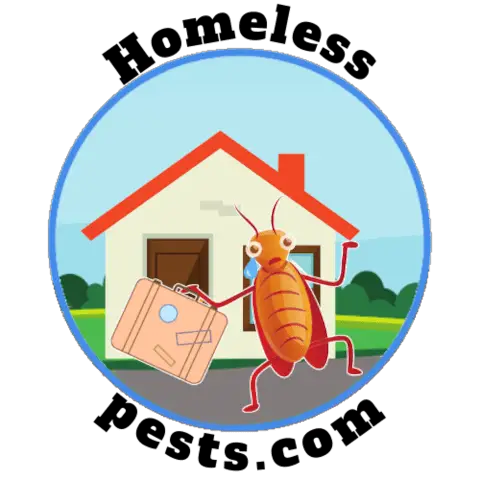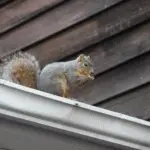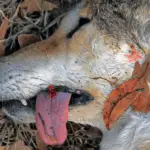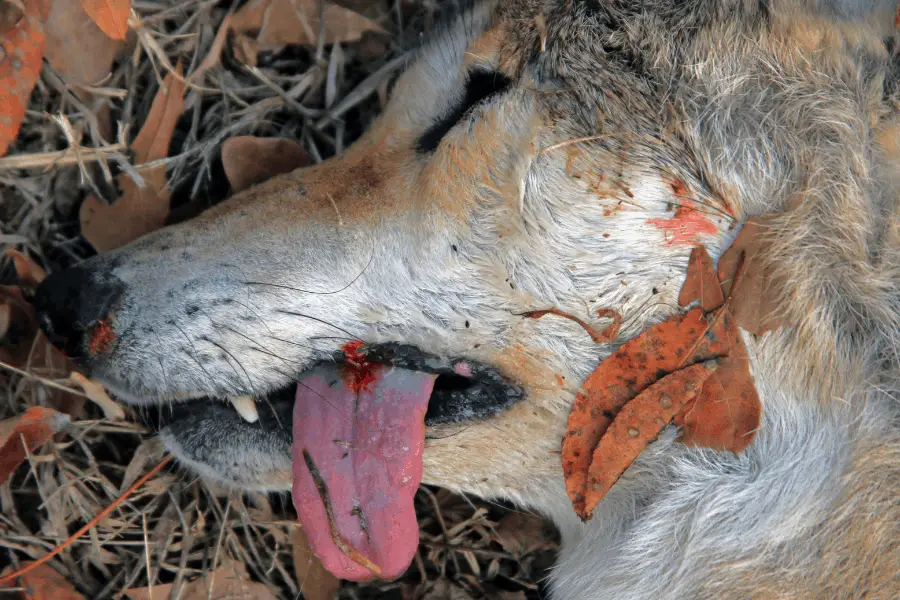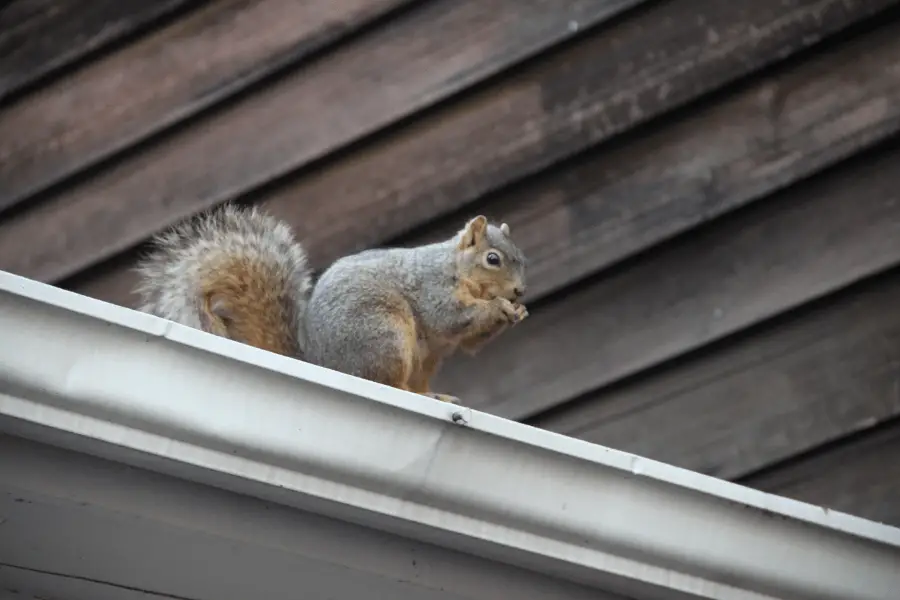
Raccoons, contrary to what some countries think, do not make good house pets and are in fact quite a pesky pest to have on your property in general.
When other pests cause similar devastation and destruction we don’t think twice about pushing them off their mortal coils, but where do you stand if you want to kill a raccoon causing chaos on your property?
In many US states, you are allowed to kill raccoons on your property with snap traps but rarely by shooting them. Many other regions forbid the killing of such pests, even within the home, and only permit the use of live traps and transportation of these pests. Hunting regulations can change from state to state and violations can be harsh.
Unfortunately, there is no one simple answer to your question about whether or not you can legally kill a raccoon on your land. So, I recommend that you continue reading in order to learn more about your own personal situation.
What attracts raccoons to your yard?
Raccoons are wild animals but they have become urban pests across most of America. This is because they are attracted to the food and shelter that people provide.
Raccoons will eat just about anything, including pet foods left outside overnight or in a garage where they can get at them easily and even birdseed from feeders hung too low for birds but not raccoons who climb up on trees nearby with ease (and then poop all over your yard).
Raccoons are notorious for targetting your garbage cans and dumpsters. They will also raid your compost pile, and tear up the lawn looking for earthworms or grubs to eat when they are hungry enough (and then again poop all over it).
Raccoons may take shelter in an abandoned building on a property where there is no one around at night time – such as sheds that have been left open or other similar structures.
So, your first job is to try and identify where the raccoons are coming from.
The first step is to make sure that there’s no food or water sources on your property, and if you have a pond in an area of heavy vegetation then it may be worth draining this for now as well (though they will just come back when its refilled).
If possible try not to leave garbage cans out overnight or buy ones that can be securely closed even when tipped. Getting an anti-wildlife trash can that is lockable is the best course of action.
How do you legally kill a raccoon on your property?
Firstly, you do need to check your local state laws as there may be certain statutes that dictate if you can kill raccoons or not. Certainly, in Washington D.C. there are no circumstances when it’s ok to kill raccoons.
If you live in a state where it’s legal to kill raccoons on your urban property, probably the only method is by trapping them. Snap traps are the most common and are usually set in a location where raccoons will be likely to walk over them.
If you have an attic or crawl space, it may also help if there is access from below – for example by removing floorboards or cutting holes through ceiling joists with power tools (though this can create other problems). By taking this extreme measure you could then place snap in an ideal and hidden position to kill the raccoon.
If you don’t have an attic, but do live in a state where it’s legal to kill raccoons on your urban property and want them gone as soon as possible without having the hassle of trapping then setting these snap trap up outside is also possible.
Be sure to keep the traps in a place where children (and THOSE adults) and pets can’t reach them. Ideally, if you are in an urban environment, live traps should be set up in a place where raccoons are likely to come, such as near an open trash can or dumpster.
If you have the time and patience for live trapping then releasing them alive is a very humane option – though this may not always work out well if they’re too wild (or hungry).
Remember that in all US states, almost without exception, it is illegal to let off a firearm within the city limits, especially for pest control. If you can successfully trap a raccoon yourself call in some professional help.
In some states, it is totally illegal to kill raccoons on your property. In these cases, you may need a license or permit from the state wildlife agency in order for killing them legally and humanely with traps (or other methods).
I have heard of some other methods to kill raccoons including drowning them in traps, but that’s just so cruel I wouldn’t want to mention it.
Again, you need to do your own due diligence and check the local laws
How do you humanely trap a raccoon?
The best way to trap a raccoon without actually harming it is by using a live trap.
Live traps are usually made of wire mesh and have a door that closes when the raccoon enters. The trap is then secured to prevent it from escaping, but there should be enough space for air flow so as not to suffocate or injure them in any way while they’re inside (and also allow you access).
The best bait would probably either something sweet or something quite fatty, these will have all the local raccoons drawing near. Marshmallows or some sweet fruit seem to be popular amongst trappers.
The live trap should be placed in a secluded area where the raccoon will feel safe enough to enter. The best time of day would probably either early morning or late evening when they’re more active and less likely scared off by your presence (or any other noise).
Once you have caught your target it’s important not to touch them too much and also try to keep the noise down so they don’t get spooked while inside their cage – this will make sure that you and they aren’t injured.
Just remember that if you live with the city limits it is illegal to release them in there in almost all cases. In Washington D.C for example you have to legally release raccoons at least 25 miles outside the city limits, or in a surrounding state, into a national park or habitat predetermined by state officials.
If you live outside of a major metropolitan area, it is likely that raccoons are not native to your region, and releasing one will be illegal as well – they may have no natural predators or food sources there so their population could grow out of control very quickly!
If this sounds like what’s happening where you live, give your local authorities a call and ask for advice as to where you should release the raccoons.
What are some humane deterrents for raccoons?
The best way to humanely deter a raccoon is to remove the food source. This can be done by sealing up any holes in your home that may allow access to a pet door, garage or shed where they could find sustenance – raccoons are clever and will try many different ways of getting into these areas so you need them all sealed off!
You can also use smell to your advantage. Raccoons hate the smell of citrus and will avoid it. You can use citrus peels or orange oil to deter them from your property, but be sure not to leave any of the fruit out as this is what they are after!
Raccoons also can’t stand the smell of garlic or cayenne peppers. You can use these spices to deter them from your property, by mixing up a spray solution and covering all points of access with it.
A raccoon’s sense for smell isn’t quite like ours so you may need a lot more than just one or two cloves to really get the job done. The best way would probably be to use garlic powder in an area where you know they frequent.
Planting cucumber plants along your boundaries is also effective.
Raccoons also have a keen sense of hearing so you may want to invest in some motion-activated sprinklers that make noise when the raccoon approaches.
You can also use an ultrasound emitter which will really drive the raccoons made making them leave the area while not bothering humans in the slightest.
How do you get rid of raccoons in your yard?
There are several steps you can take to get rid of raccoons in your yard besides killing them.
By far the most effective method, as mentioned before, is to remove their access to food. This can be done by securely closing your garbage cans so that they can get into them, even when they tip them over. You can pick up an anti-raccoon garbage can from most retailers or online and they are really worth the money.
You also need to make your yard an uncomfortable environment by introducing a lot of noise, light, and smells that raccoons don’t care for.
What are raccoons scared of?
Racoons don’t like certain things which will make them run the other way, including bright lights, loud noises, and certain aromas.
If you can fix an automatically triggered motion sensor with a strong light attached to it, you can scare them away quite easily. Setting this up around your garbage cans will be the most effective placement.
Also, invest in an ultrasound emitter that will emit a high-pitched sound that they don’t like.
A raccoon deterrent is an electronic device that emits sounds and lights to scare away the animals from your property, they are also quite effective against other animals such as squirrels and rodents in general. These devices are usually battery-powered or come with solar panels so they can work almost non-stop.
Can you shoot nuisance raccoons?
If you are in a city backyard the answer is almost always going to be no you can’t shoot a raccoon.
Hunting raccoons may only be legal in certain states and at specific times with a valid hunting license, so it’s worth checking your local laws before you go out shooting any animals on private property (especially if there are neighbors close by).
If you do have a license to hunt raccoons and your state allows you to do this, be sure that you have that document on your person at all times while hunting.
In some states, such as Washington D.C., it is illegal to kill a raccoon under any circumstances and you could face serious consequences if caught doing so (including fines or jail time).
You can buy rifles or shotguns that are designed for killing animals such as this from most sporting goods stores. If taking this course of action, be sure that you actually have the right equipment for the job.
Where do raccoons nest?
Raccoons will set up nests in trees, under decks and porches, or in attics.
Raccoons will set up nests anywhere they can find a safe place to sleep for the night- this includes your attic! They are very clever creatures that have adapted well over time so it is difficult sometimes even if you know what signs of their presence look like on sight alone.
If you want to know whether or not a raccoon is nesting on your property you can actually buy and set up game cameras that will be activated by movement and start filming. This can help you site traps better and rid you of these pesky critters.
How dangerous are raccoons?
Raccoons can be dangerous if they are in close proximity to humans. They can carry rabies and other diseases, so it is important not only for your safety but also the health of others that you get rid as soon as possible!
Raccoons will often come into contact with people when looking through garbage cans or dumpsters at night- this means there’s a higher danger that they will become aggressive. Never handle a raccoon without some sort of protective gloves.
